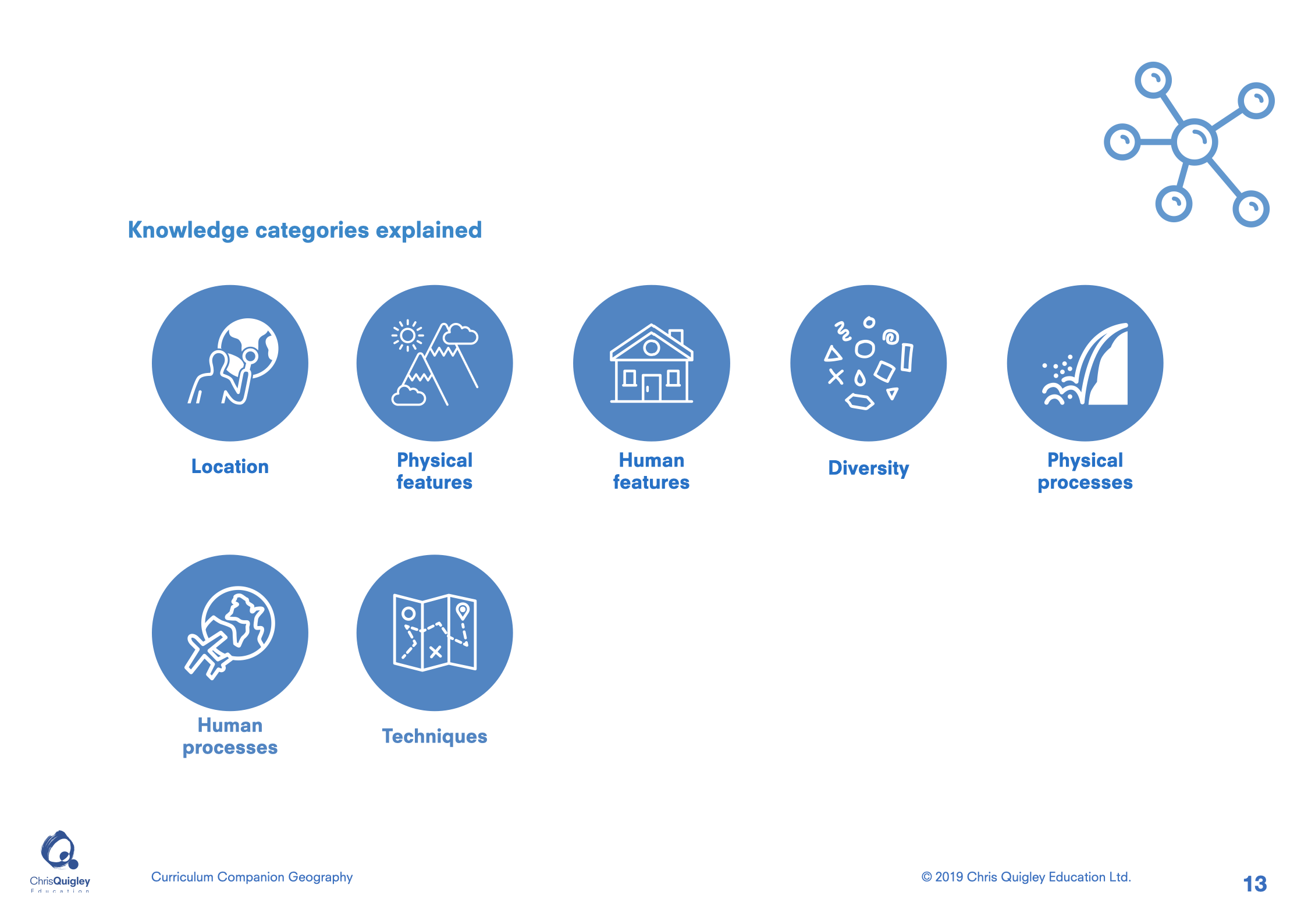
Some basic principles of learning:
Learning is a change to long-term memory – where all knowledge is stored. Three main types of knowledge are stored in long-term memory:
- Procedural knowledge (e.g. handwriting, walking, calculation strategies etc.), which until a few years ago, I would have called ‘skills’. However, I stopped using this term when I learned about the next two forms of knowledge…
- Semantic knowledge (e.g. the ‘five-ness’ of the number five; the chronology of events etc.) involves understanding the meanings of facts and how they relate to other facts
- Episodic knowledge (e.g. a party you attended, a visit to a museum etc.)
All three types of knowledge are intertwined: One becomes better procedurally (at calculations, for example) the more one understands the semantics of the number system; one becomes more semantically knowledgeable about the number system the more one practises the procedure of calculating. Moreover, the more suitable, repetitive and wide-ranging the episodes, the better the fluency of procedural knowledge and the deepening of semantic understanding. This is why the term ‘skills’ may not be the best way of describing learning.
‘Intertwined’ knowledge: schema development.
Understanding what knowledge is, and isn’t, is essential in developing sequences of work for students, so they acquire the body of knowledge detailed in your curriculum. This body of knowledge is known as a schema. Schema theory states that all knowledge is organised into groups. Schemas (or schemata) are meaningful groups of knowledge made up of ‘intertwined’ procedural, semantic and episodic knowledge.
Simply providing students with ‘information’ about a topic does little to help them build a schema. The diagram below shows the difference between information and schema.
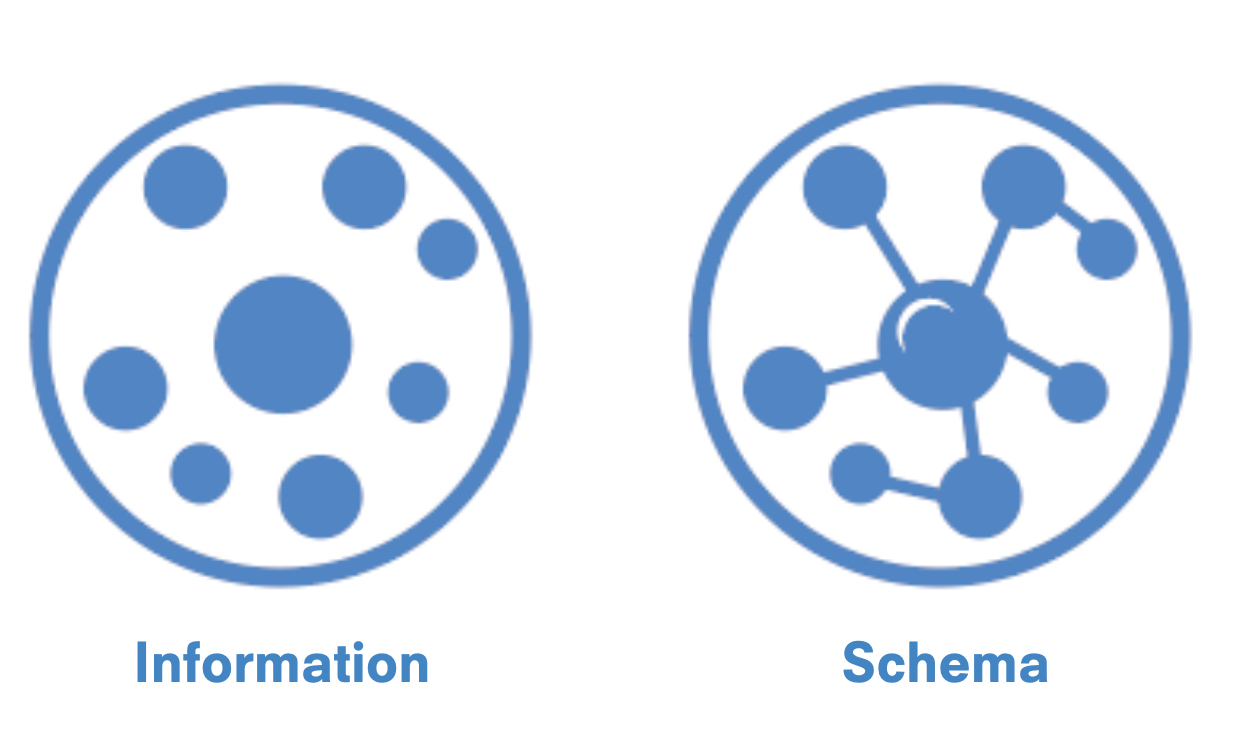
The difference between information and a schema
The problem with knowledge ‘organisers.’
When looking at knowledge organisers, the most fundamental question is ‘How is knowledge organised?’. In many cases, the answer is that it is not organised in any meaningful way. This makes them information sheets rather than a form of assimilating new information into a schema. Perhaps a more helpful term for knowledge organisers might be organised knowledge to make the point that without organisation, ‘knowledge’ is simply random information.
Knowledge categories
An effective knowledge organiser should organise information into categories that help students to understand where the new information sits in relation to previously learned knowledge. Here are the knowledge categories we have created for geography:
Knowledge categories for geography
This is how a Key Stage 1 topic is organised around the relevant categories:
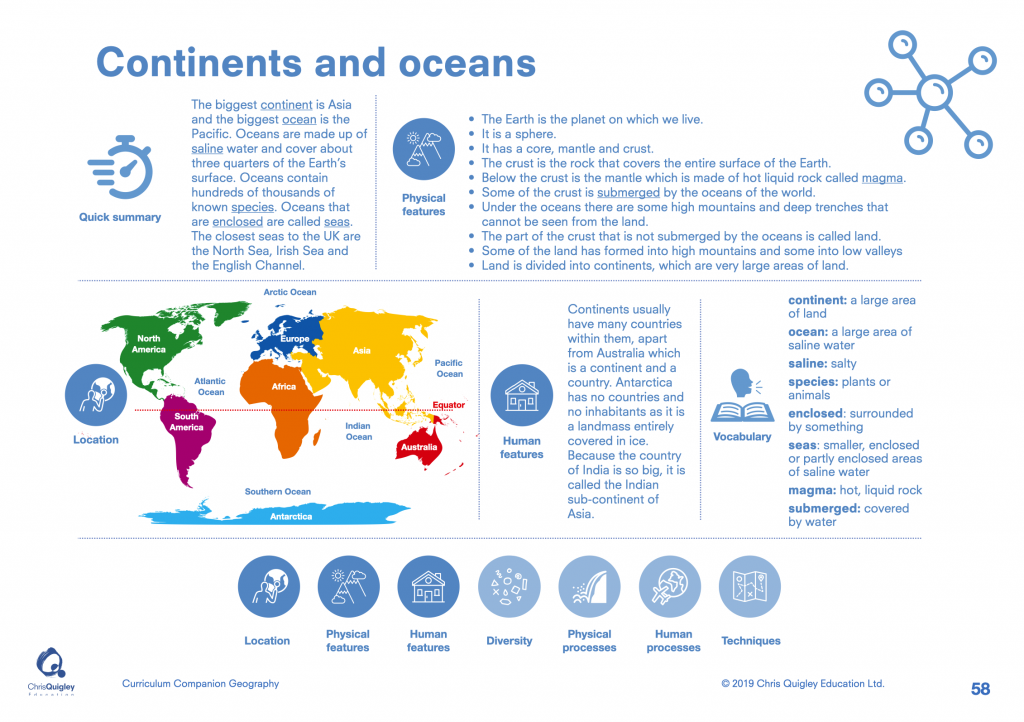
Knowledge organised around the relevant categories
The idea is that every topic is related to the relevant categories; each time a category comes up again, students are reminded of the knowledge they already have in that category. E.g. ‘Remember in the topic on the United Kingdom we looked at human features, such as The London Eye – a tourist attraction in London? Now we are going to look at how Antarctica has no inhabitants – a human feature of this continent.’
Here is another topic, this time from Key Stage 2. Notice how the same categories are used.
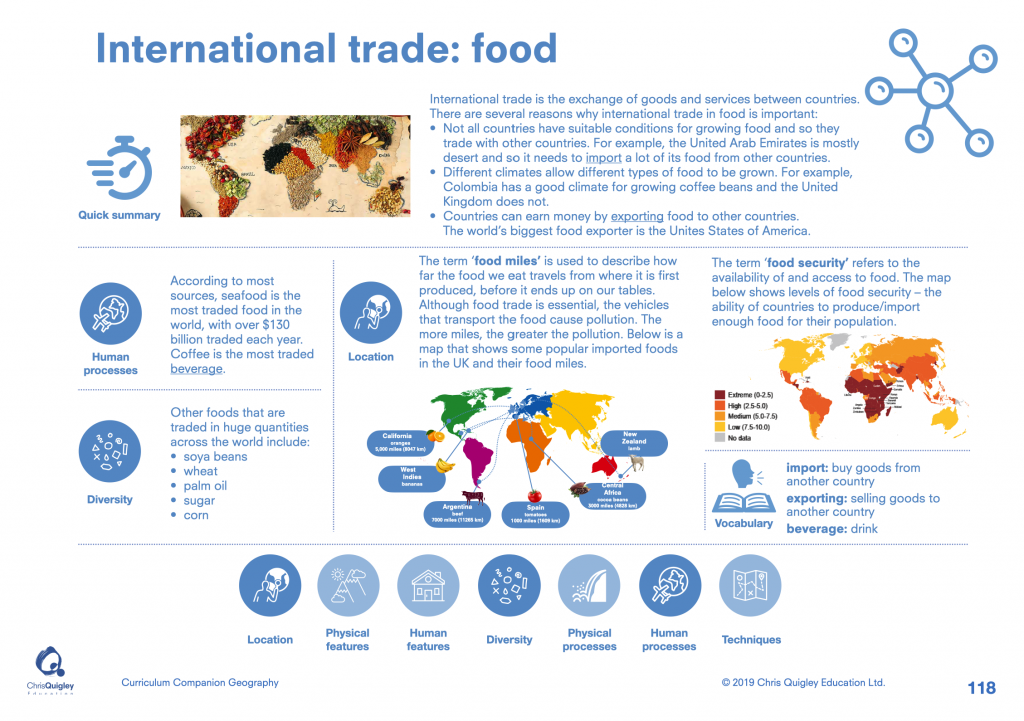
Key Stage 2 topic using the same knowledge categories as in Key Stage 1
Here is one more…
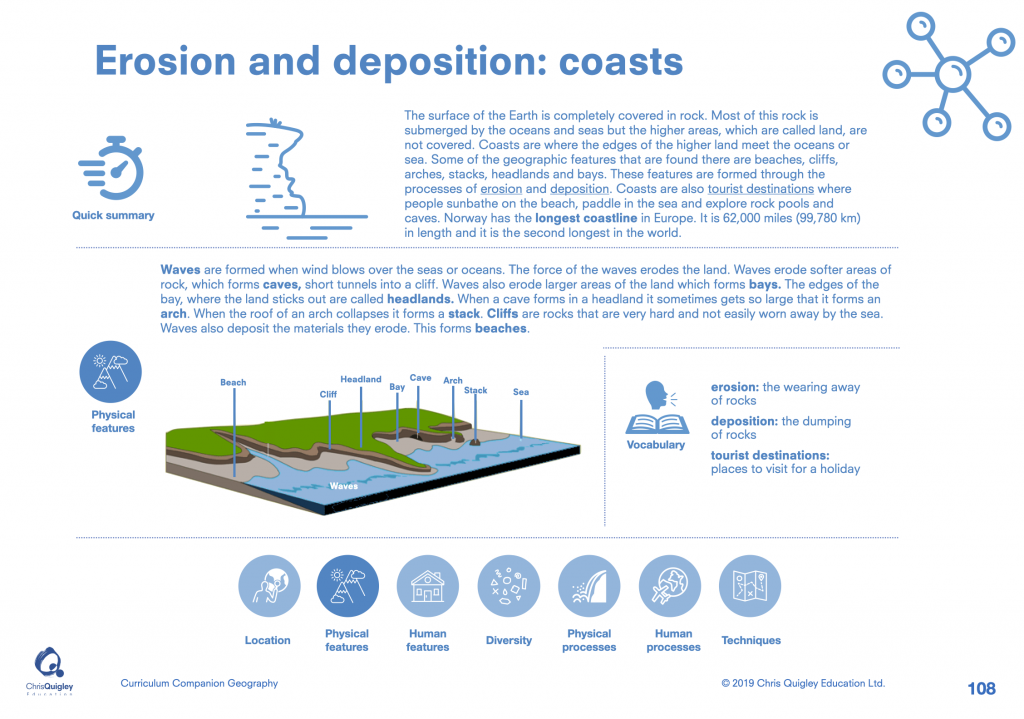
Key stage 2 topic organised around knowledge categories
Our Curriculum Companions, now published for:
- Geography
- History
- Art & Design
- Physical Education
- Design & Technology
- Early Years
contain knowledge webs and progression tasks in all aspects of each subject. Find out more about them here.

.png)
